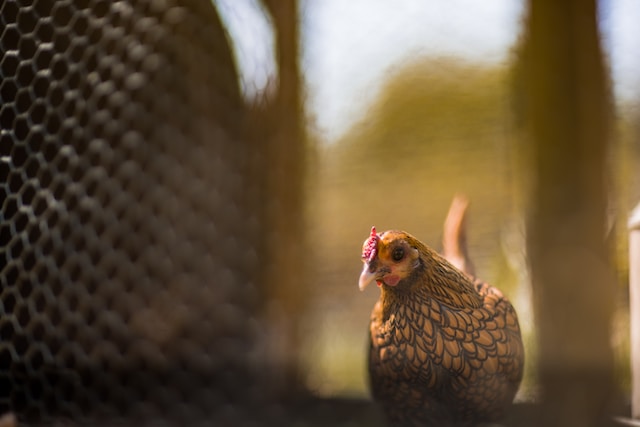Introduction: Genetics plays a pivotal role in hen’s egg production, influencing factors such as productivity, egg quality, disease resistance, and overall performance. Through selective breeding and advanced genetic techniques, poultry breeders strive to enhance desirable traits and improve the efficiency of egg production. In this article, we explore the significance of genetics in hen’s egg
Introduction: Genetics plays a pivotal role in hen’s egg production, influencing factors such as productivity, egg quality, disease resistance, and overall performance. Through selective breeding and advanced genetic techniques, poultry breeders strive to enhance desirable traits and improve the efficiency of egg production. In this article, we explore the significance of genetics in hen’s egg production and the breeding strategies employed to achieve improved performance and traits.
- Selective Breeding: Selective breeding is a fundamental approach used in hen’s egg production to enhance specific traits. Poultry breeders carefully select parent birds based on desired characteristics such as high egg production, egg size, shell quality, feed efficiency, and resistance to diseases. Over generations, this process promotes the transmission of favorable genetic traits, resulting in improved performance in subsequent generations.
- Genetic Selection Tools: Advancements in genetic selection tools have revolutionized the breeding process in the poultry industry. Breeders now have access to sophisticated techniques such as genomic selection and marker-assisted breeding. Genomic selection involves analyzing the entire genome of an individual to identify genes associated with desirable traits, allowing for more precise selection decisions. Marker-assisted breeding utilizes specific genetic markers linked to target traits, facilitating the selection of birds with desired genetic profiles.
- Disease Resistance: Breeding for disease resistance is an important aspect of hen’s egg production. Genetic selection can help improve the flock’s resistance to common diseases, reducing the need for antibiotics and minimizing disease-related losses. By identifying and selecting birds with natural resistance or tolerance to specific pathogens, breeders can enhance the overall health and well-being of the flock.
- Egg Quality: Egg quality is a key consideration for consumers and the food industry. Breeding programs focus on traits such as shell strength, yolk color, albumen quality, and egg size uniformity. Through selective breeding, breeders can improve these traits, ensuring consistent high-quality eggs that meet consumer expectations.
- Feed Efficiency and Nutrient Utilization: Efficient feed utilization is crucial for sustainable egg production. Breeders work towards developing strains of birds with enhanced feed efficiency, allowing for optimal nutrient utilization and reduced feed wastage. Birds with improved feed efficiency contribute to lower production costs and reduced environmental impact.
- Hen Welfare: Hen welfare is an important consideration in modern egg production systems. Breeding programs aim to develop birds that are well-adapted to the specific production environment, minimizing stress and improving welfare outcomes. Traits such as docility, adaptability, and feather coverage are considered in the breeding process to ensure the well-being of the flock.
- Genetic Diversity and Preservation: Maintaining genetic diversity within breeding populations is critical for the long-term success of hen’s egg production. Breeders must carefully manage genetic diversity to prevent inbreeding and preserve desirable traits. Strategies such as rotational crossbreeding, maintaining pedigree records, and collaborating with other breeders contribute to maintaining genetic variation and preventing genetic stagnation.
- Research and Innovation: Ongoing research and innovation drive advancements in the field of poultry genetics. Collaborations between breeders, scientists, and research institutions contribute to the development of new breeding techniques, the discovery of novel genetic markers, and the identification of genes associated with desirable traits. Continued investment in research ensures the continuous improvement of breeding strategies and the sustainability of hen’s egg production.
Conclusion: Genetics plays a pivotal role in the improvement of hen’s egg production, enabling breeders to enhance performance, disease resistance, egg quality, and welfare. Through selective breeding, the utilization of advanced genetic selection tools, and a focus on sustainable practices, the industry continues to make significant strides in producing high-quality eggs efficiently. Ongoing research and collaboration are essential in driving innovation and ensuring the long-term success of hen.

















Leave a Comment
Your email address will not be published. Required fields are marked with *